
Stories that changed our world in 2010
From Wikileaks to potential war in Korea to red shirts in Thailand, these were some of the big stories we couldn't stop talking about in Asia this year
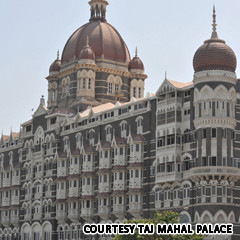
Taj Mahal hotel’s heritage wing reopens
After nearly two years of rueful rehabilitation following its destruction at the hands and rifles of terrorists, the Taj Mahal Palace’s heritage wing triumphantly reopened on Independence Day.
The renovations required Rs 1.75 billion (US$37 million) and the invaluable diligence of workers who used old photographs to scrupulously recreate the unique trappings of the oldest portion of the 107-year-old hotel.
A marble plaque memorializing the 32 people killed in the hotel during the terrorist attack of 2008 reads, “For now and forever you will inspire us.”

Pacquiao wins congressional seat
The fighter of the last decade could be the politician of the next. In his second run at public office in May, Manny Pacquiao beat a heavily favored opponent from a powerful political family by a landslide in congressional elections held in the Philippine province of Sarangani.
The beloved Filipino fighter was sworn in to the House of Representatives in June, but requested a leave of absence two months later to train for an upcoming bout with Antonio Margarito.
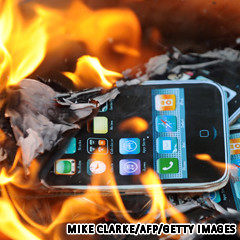
iPhone worker suicides
Foxconn, manufacturer of the iPhone, offered workers at its Shenzhen facility in China a 66 percent performance-based wage increase in June following a series of suicides blamed on worker burnout.
The raise accompanied a 30 percent cash hike awarded a week earlier, more than doubling wages to RMB 2,000 (US$300) a month, and provoking what economists suspect will become a larger trend in compensation across China.
Twelve workers committed suicide at the plant, while 20 more attempts were halted by the company.
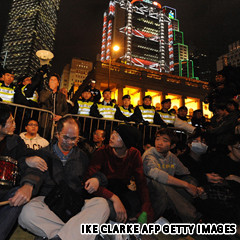
HK-Shenzhen-Guangzhou rail link funded
In January, LegCo approved HK66.9 billion (US$8.6 billion) in funding for the Hong Kong portion of the Guangzhou-Shenzhen-Hong Kong high-speed rail link.
The decision came after 25 hours of heated debate and amid clashes outside between police and pro-democracy protestors, who viewed the move as a steamrolling maneuver by the mainland.
The plan, projected to wrap in 2015, links Hong Kong with China’s high-speed rail network, and promises to cut travel time to Guangzhou in half.
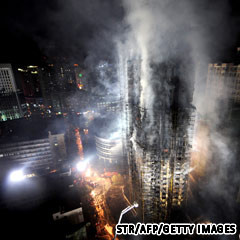
Shanghai fire kills 58
Welding sparks during renovations of an apartment building in Jing’an district in November touched off a blaze that engulfed the 28-story structure in flames, killing 58 people.
The four-hour blaze raised concerns over sweeping efforts to reduce energy use by installing flammable insulation to the exteriors of existing structures, as with the Jing’an fire.
The 13-year-old apartment building contained approximately 500 units, primarily housing retired teachers and children.
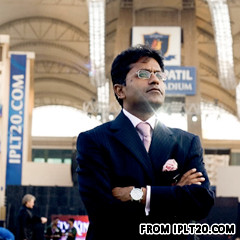
India cricket scandal
In April, tax officials raided Indian Premier League offices as part of an investigation into money laundering that soon widened to include betting, match-fixing, tax evasion, conflicts of interest and political influence peddling.
IPL’s superstar founder, Lalit Modi, is blamed for runaway malfeasance in the league, which is alleged to have operated with Enron-like impunity.
The scandal threatened to not only jeopardize cricket’s image, but prevailing notions of a “New India,” free from the corruption of its past.

Sina Weibo reports 50 million microbloggers
Though initially introduced last year, 2010 saw the rise of the microblog, or Weibo.
The first of its kind, Sina Weibo attracted 10 million microbloggers in months and now claims to have registered 50 million Sinotweeters.
Every Chinese portal launched its own Weibo this year, making it the main news and narcissism platform for mainland netizens.
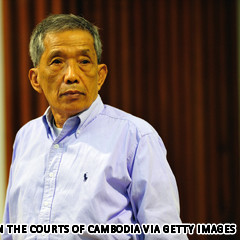
First of Khmer Rouge hierarchy sentenced
More than 30 years after the Khmer Rouge exterminated 25 percent of Cambodia’s population, the first major figure in the regime to be tried for its crimes was sentenced in July.
Sixty-seven-year-old former teacher Kaing Guek Eav, also known as Comrade Duch, received 19 years in jail on top of 16 years already served for his part in running the S-21 detention center in Phnom Penh.
There, Duch oversaw the brutal torture of detainees considered most threatening to the regime.
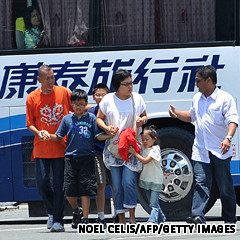
Hong Kong tourists killed in Manila bus tragedy
In August, a daylong bus siege in the Philippine capital of Manila ended in the murders of eight members of a Hong Kong tour group and the death of their hijacker, a disgraced former senior police inspector demanding reinstatement to the force.
In the wake of the slayings, protestors seeking accountability for what they believed were botched negotiations by local police marched on the Philippine consulate in Hong Kong, rocking a populace unaccustomed to violent crime.
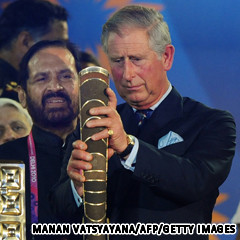
Commonwealth Games failures in India
Organizers of October’s 2010 Commonwealth Games in New Delhi needed eight years to plan for the quadrennial event. They got seven.
As such, missed deadlines, poor construction, security issues, execrable accommodations and corruption prompted some athletes to stay home, a wise move if you were among the 20 percent of England’s swim team to fall ill after several heats in the facilities’ murky pools.
Embarrassment came to a head at a press conference when organizing committee chairman Suresh Kalmadi thanked Princess Diana for attending the opening ceremony.
The games were a high-profile blight on a nation that has otherwise made ambitious gains on the world stage. An official from the Delhi Commonwealth Games organizing committee even appologized for the "collective failure."
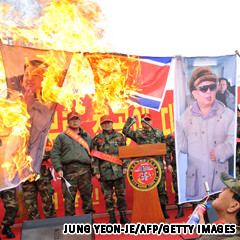
Korea military hostilities
Calling it an invasion of his nation’s territory, the president of South Korea vowed “enormous retaliation” for an artillery strike by the North Korean military on Yeonpyeong Island in November.
The bombing marked the first direct attack on South Korea since 1953, and sparked an hour-long exchange of fire between both sides.
The incident, combined with the sinking of a South Korean warship blamed on North Korea in March, has raised global concerns of all-out war.
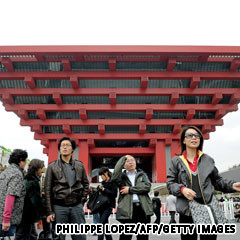
Shanghai Expo success
The most expensive expo in the history of expos drew more than 70 million visitors during Shanghai Expo’s 184 days of national pride and corporate messaging, and breathed new life into the former site of crumbling shipyards and steelworks.
Convenience was sacrificed in the name of global perception -- more than 18,000 families, 10,000 workers and 270 factories had to be relocated -- but the images, indulgence and innovation of the event seemed to make it worth the trouble for most.








